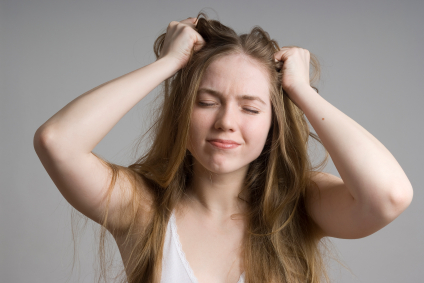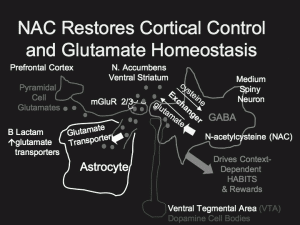NAC Is Not Effective In Children With Trichotillomania As It Is In Adults
N-acetylcysteine (NAC) is a drug available over-the-counter in health food stores that is effective in a variety of disorders, including trichotillomania (compulsive hair-pulling) in adults. Researcher Michael Block of Yale University reports that, in contrast to NAC’s robust effects in adults, the drug was not effective in children with trichotillomania aged 8 to 17. However, behavior therapy has been reported to be effective in both adults and children.
Editor’s Note: Why a drug that is so effective for trichotillomania in adults does not work well or at all in children is not clear. It is even more perplexing given that NAC has shown robust effects on some other childhood disorders, such as irritability and stereotypy in children with autism. However, if this discrepancy and other differences in pharmacological response across demographics are replicated, the reasons for differential response should be investigated.
As many researchers have emphasized, kids are not just shorter adults, but might have entirely different brains that are in a different stage of development. Extrapolating the therapeutic effects that occur in adults to children may not always be a valid strategy.
The N-acetylcysteine Story: A New Potential Therapy for Bipolar Illness and Substance Abuse
N-acetylcysteine (NAC), a readily available substance from health food stores, is able to reestablish glutamate homeostasis (regulation and balance) in the reward area of brain (the nucleus accumbens), reported Peter Kalivas of the University of South Carolina at the “Staging neuropsychiatric disorders: Implications for idiopathogenesis and treatment” meeting in Mojacar, Spain this past November. Kalivas reported that NAC appears to be effective across a spectrum of addictions, including cocaine, heroin, alcohol, cigarette smoking, and gambling.
Even more remarkably, NAC also appears to have positive effects in placebo-controlled studies in the treatment of patients with bipolar illness, report Mike Berk and colleagues, who are studying the same substance in Australia. Compared with placebo, patients taking adjunctive NAC showed improvement in all outcome measures, especially depression, after 3 and 6 months. In another article, also published in Biological Psychiatry in 2008, Berk’s research group demonstrated that NAC improved some negative symptoms of schizophrenia. NAC has also shown positive effects in trichotillomania and on nail-biting, suggesting that it has a variety of potential clinical uses in conditions associated with pathological compulsive behavioral patterns.



